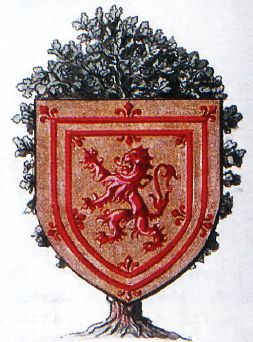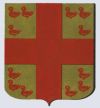Vitrival: Difference between revisions
Knorrepoes (talk | contribs) No edit summary |
Knorrepoes (talk | contribs) No edit summary |
||
| Line 1: | Line 1: | ||
{| class="wikitable" | {| class="wikitable" | ||
|- style="vertical-align:top;" | |- style="vertical-align:top;" | ||
|[[File: | |[[File:Vitrival.jpg|center|300 px|alt=Blason de {{PAGENAME}}/Arms (crest) of {{PAGENAME}}]] | ||
| | | | ||
'''Country''' : Belgium [[File:Belgium.jpg|60 px|right]]<br><br><br> | '''Country''' : Belgium [[File:Belgium.jpg|60 px|right]]<br><br><br> | ||
Revision as of 04:26, 7 May 2023
|
Country : Belgium Province : Namur Incorporated into:
|
| French | DD'or, au double trécheur, fleuronné et contre-fleuronné, accompagné en cceur d'un lion, le tout de gueules- l'écu posé devant un chêne au naturel. |
| English | blazon wanted |
Origin/meaning
The arms were officially granted on October 31, 1961.
The arms are those of the Chapter of St. Feuillien in Fosses. The church was a collegiate church and had its own chapter which owned much of the village. The church was founded as part of a monastery by Saint Foillan (Feuillien in French) in 652. He was buried in the church in 655 after being killed by bandits in a nearby forest. As the first monks in the monastery came from Scotland (Saint Foillan was Irish though) , the municipality opted for the Scottish arms as municipal arms.
The tree symbolises the local forest. In the early medieval times the village obtained several rights to the forest. However, there were many conflicts between the village and the Chapter. On April 13, 1287 the Prince-Bishop of Liège and the mayor of Fosses decided in favour of the village. In some later conflicts the village also won, hence the importance of the forest for the village.
Literature: Servais, 1968
This page is part of the Belgium heraldry portal/ Belgische overheidswapens/ Armorial de Belgique
|
|






